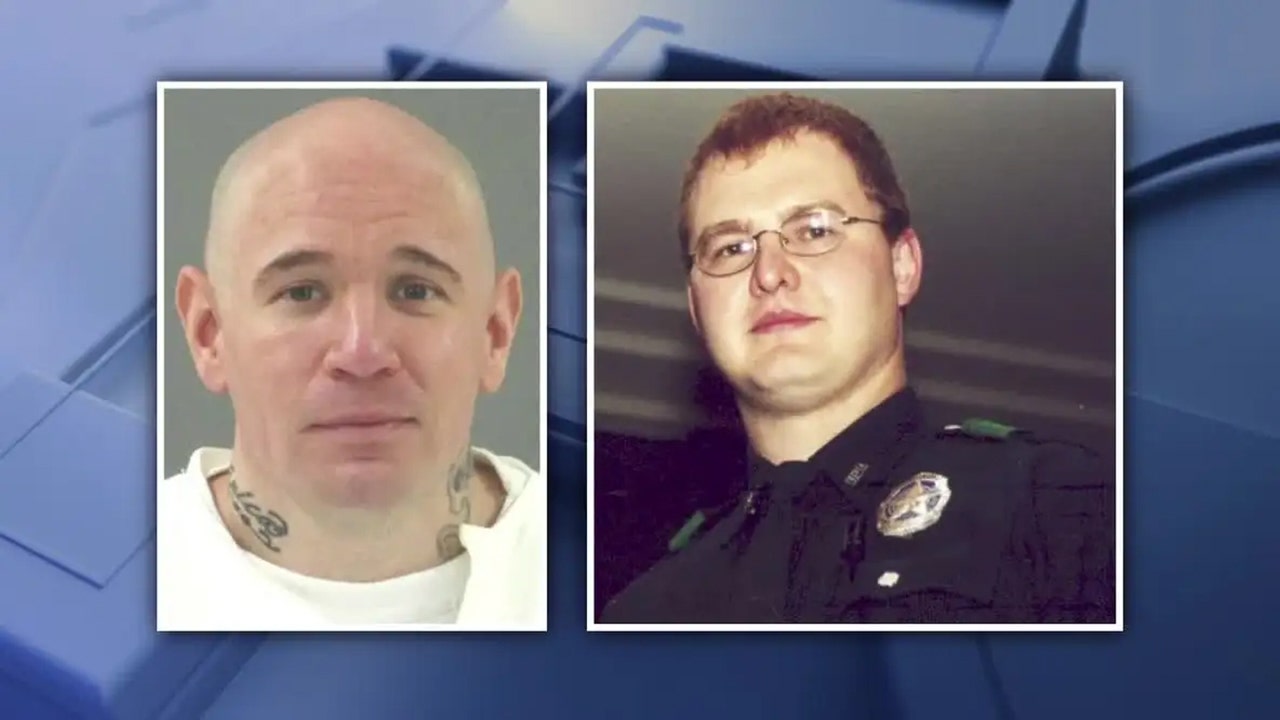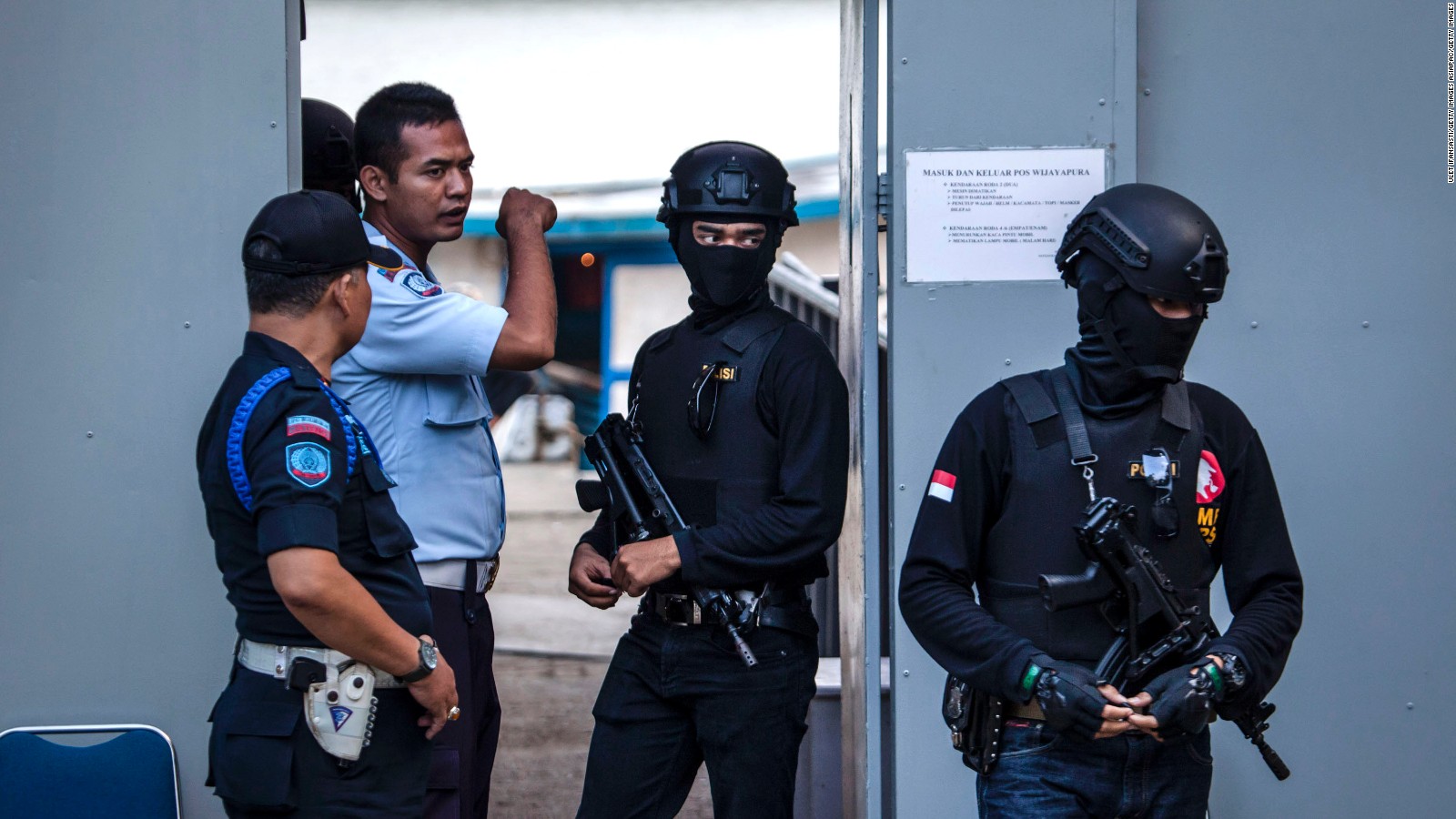Cop Killer Mahdi Executed By Firing Squad: A Shocking Conclusion To A Controversial Case
Breaking news just in, folks! Cop Killer Mahdi has been executed by firing squad, marking the end of one of the most talked-about and polarizing cases in recent history. This story has gripped the world, sparking debates about justice, crime, and the death penalty. So, buckle up, because we’re diving deep into the details you need to know.
Let’s be real here, the execution of Mahdi is a huge deal. It’s not every day that we hear about high-profile cases involving law enforcement and criminal justice systems. This story has everything—drama, controversy, and a whole lot of questions about what justice really looks like in today’s world. So, let’s break it down and unpack this heavy topic together.
As we dive into the details, it’s important to remember that this isn’t just a news story. It’s a real-life event that affects families, communities, and the broader conversation around crime and punishment. Stick with me, and I’ll walk you through everything you need to know, from the background of the case to the implications of this execution.
Read also:Sara Gilbert Shares Emotional Journey About The Roseanne Reboot Premiere
Table of Contents
- Background of Cop Killer Mahdi
- Biography of Mahdi
- Crime Details and Key Events
- The Legal Process and Trials
- The Debate Over the Death Penalty
- Execution Process by Firing Squad
- Public Reaction and Global Response
- Impact on Law Enforcement
- Ethical Questions and Human Rights
- Conclusion and Final Thoughts
Understanding the Background
Before we get into the nitty-gritty, let’s talk about the background. Mahdi, also known as Cop Killer Mahdi, gained international attention after a series of incidents that shocked the world. His story is complex, filled with layers of crime, legal battles, and public outrage. The term “cop killer” itself carries a lot of weight, and it’s a label that has sparked intense debates.
In this section, we’ll explore how Mahdi became entangled in the criminal justice system, the events leading up to his arrest, and the public’s perception of his actions. Understanding the background is crucial to grasping the significance of this case.
So, why does this matter? Well, it’s not just about one person. It’s about the bigger picture—the intersection of crime, justice, and societal values. Let’s keep rolling, because there’s a lot more to uncover.
Biography of Mahdi
Let’s take a step back and look at who Mahdi really is. Below is a quick rundown of his biography, including some key details that paint a clearer picture of his life before the crime:
Personal Data of Mahdi
| Full Name | Mahdi [Last Name] |
|---|---|
| Date of Birth | [Date] |
| Place of Birth | [Place] |
| Occupation | [Occupation] |
| Education | [Education Level] |
| Marital Status | [Marital Status] |
Mahdi’s life wasn’t always in the spotlight. He grew up in [Location], where he led a relatively normal life until the events that changed everything. Understanding his background helps us contextualize his actions and the decisions that led to his ultimate fate.
Crime Details and Key Events
Alright, let’s talk about the crime itself. Mahdi was accused of killing a police officer, an act that sent shockwaves through the community and beyond. The details of the crime are chilling, and they highlight the complexities of the case.
Read also:Dick Van Dykes Apology For His Atrocious Mary Poppins Accent
Here’s a quick summary of the key events:
- Incident Date: [Date]
- Location: [Location]
- Victim: [Victim Name], a respected police officer
- Motivation: Speculations suggest a mix of personal grievances and systemic issues
The crime itself wasn’t just an isolated incident. It was part of a larger narrative involving law enforcement, community relations, and the justice system. As we’ll see later, these factors played a significant role in shaping the outcome of the case.
The Legal Process and Trials
Now, let’s dive into the legal process. Mahdi’s trial was a rollercoaster ride, filled with twists and turns that kept everyone on edge. From the initial arrest to the final verdict, every step of the process was scrutinized by the public and the media.
Some key points to note:
- Arrest Date: [Date]
- Charges: Murder of a police officer, among other charges
- Trial Duration: [Duration]
- Verdict: Guilty
The legal proceedings were intense, with both sides presenting compelling arguments. The prosecution painted a picture of a cold-blooded killer, while the defense highlighted issues of systemic injustice and potential mitigating factors. It was a battle that captivated audiences worldwide.
The Debate Over the Death Penalty
Let’s talk about the elephant in the room—the death penalty. Mahdi’s execution reignited the global debate about whether capital punishment is just or necessary. This is a topic that divides opinions, and it’s not an easy one to tackle.
According to a report by Amnesty International, the use of the death penalty is declining globally, but it’s still practiced in some countries. The argument against it centers around human rights, the potential for wrongful convictions, and the moral implications of taking a life. On the other hand, supporters argue that it serves as a deterrent and provides justice for victims’ families.
In Mahdi’s case, the decision to execute him by firing squad was met with mixed reactions. Some saw it as a fitting punishment, while others questioned the morality of the act.
Execution Process by Firing Squad
Alright, let’s break down the execution process. Mahdi was executed by firing squad, a method that’s rare but still used in certain parts of the world. Here’s how it works:
- The condemned is typically blindfolded or hooded
- A group of trained shooters aims at the heart
- The execution is swift, often resulting in immediate death
This method has its own set of controversies, with critics arguing that it’s barbaric and outdated. However, proponents claim it’s more humane than other forms of execution, such as lethal injection or electrocution.
Mahdi’s execution by firing squad was carried out in [Location], under strict security measures. The event was shrouded in secrecy, with limited media access, adding to the mystery and controversy surrounding the case.
Public Reaction and Global Response
Now, let’s talk about how the world reacted. The execution of Mahdi sparked a wide range of emotions and responses. Social media was ablaze with discussions, protests were organized in various countries, and world leaders weighed in on the matter.
Here’s a snapshot of the public reaction:
- Supporters: Praised the decision as a form of justice
- Opponents: Condemned the act as inhumane and unjust
- Neutral Parties: Called for a deeper examination of the justice system
The global response highlighted the divide in opinions on the death penalty and the role of justice in society. It’s a conversation that’s far from over, and Mahdi’s case will likely be studied for years to come.
Impact on Law Enforcement
Let’s shift gears and talk about the impact on law enforcement. Mahdi’s case has had a significant effect on how police officers are perceived and how they operate. The killing of a police officer is a serious breach of trust, and it raises questions about community relations and police accountability.
Some key impacts include:
- Increased scrutiny of police actions
- Debates on the use of force and de-escalation tactics
- Efforts to improve trust between law enforcement and the communities they serve
Mahdi’s case serves as a reminder of the challenges faced by law enforcement agencies in maintaining public safety while respecting human rights.
Ethical Questions and Human Rights
Finally, let’s tackle the ethical questions and human rights implications. Mahdi’s execution raises important issues about the value of life, the role of punishment, and the limits of justice. These are tough questions that don’t have easy answers.
Here are some key points to consider:
- Does the death penalty align with modern human rights standards?
- Can justice be achieved without taking a life?
- What role does society play in shaping the justice system?
These questions are at the heart of the debate surrounding Mahdi’s case. As we move forward, it’s crucial to continue discussing these issues and finding ways to improve the justice system for everyone.
Conclusion and Final Thoughts
And there you have it, folks! Cop Killer Mahdi’s execution by firing squad marks the end of a chapter, but the story is far from over. This case has sparked important conversations about justice, crime, and human rights. It’s a reminder that the decisions we make as a society have real-world consequences.
So, what can you do? Start by staying informed, engaging in meaningful discussions, and advocating for change where needed. Share this article with your friends, leave a comment with your thoughts, and keep the conversation going.
Remember, justice isn’t just about punishment—it’s about creating a better, more equitable world for all. Thanks for sticking with me through this heavy topic, and I hope you found this article informative and thought-provoking.
Article Recommendations


